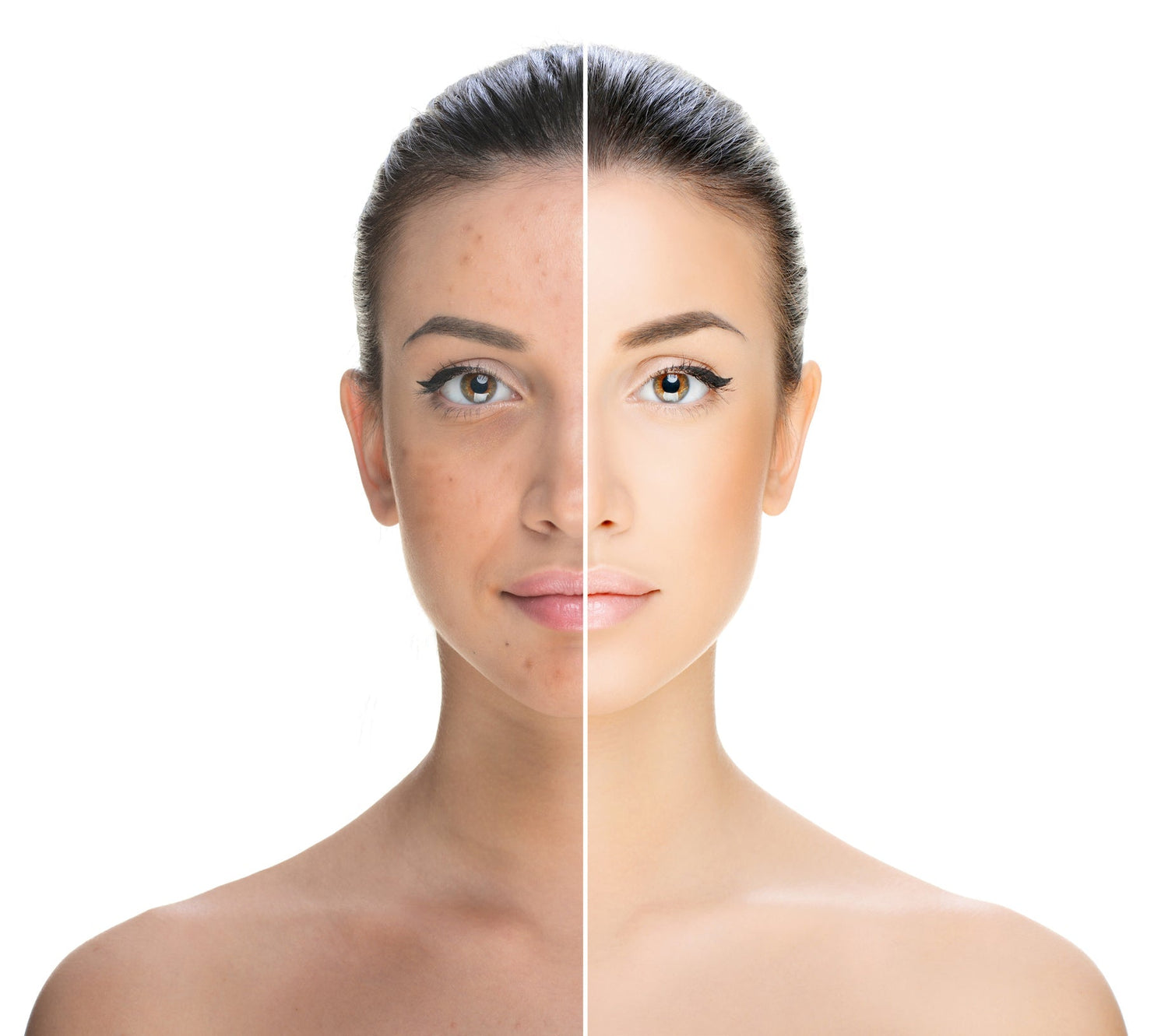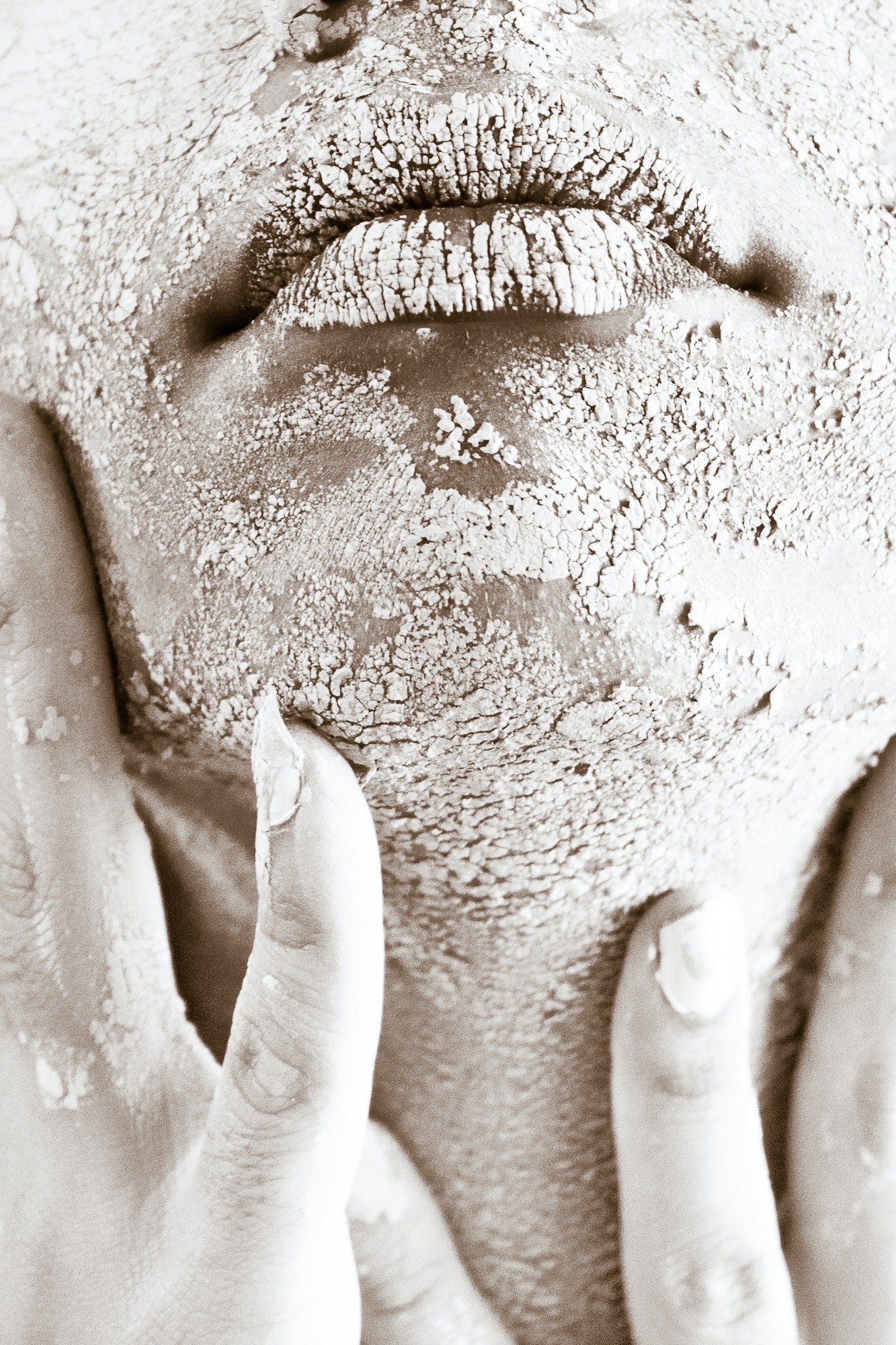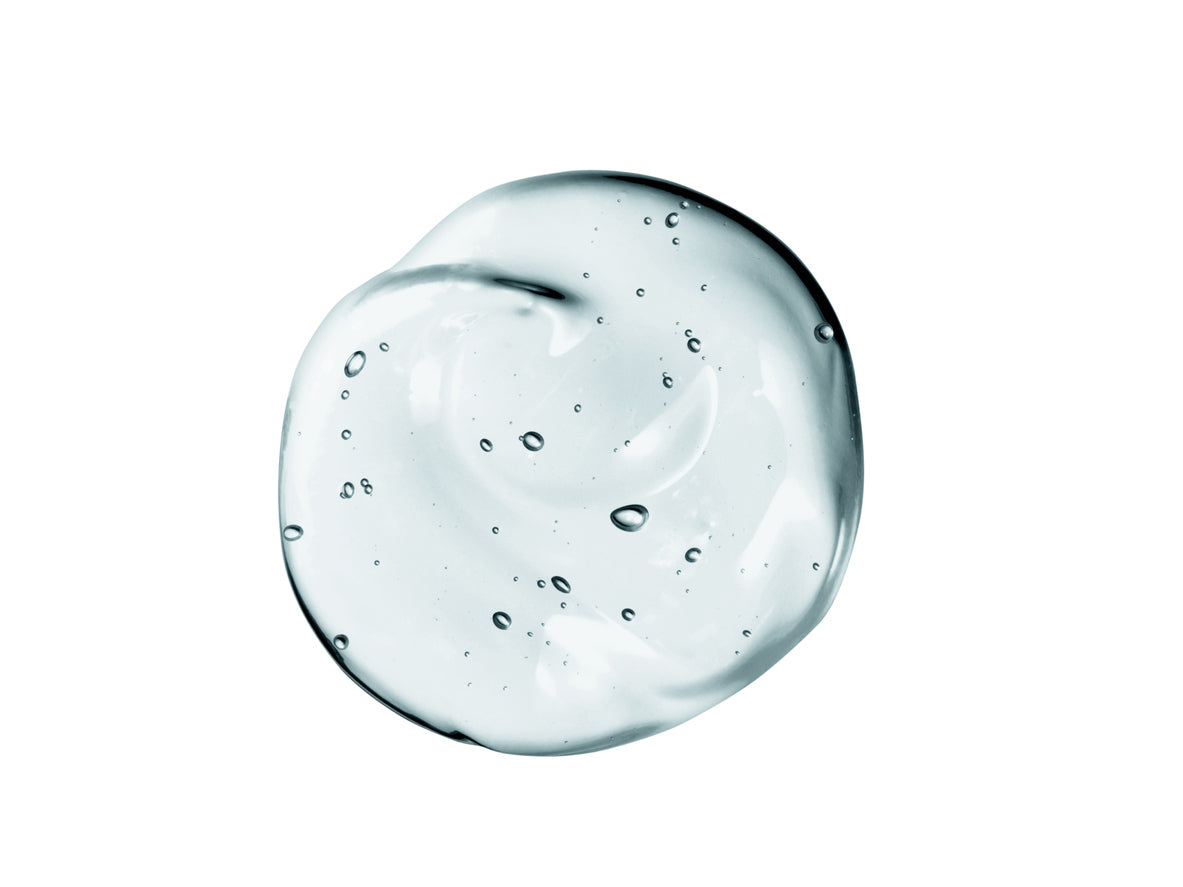
Does Retinol Increase Collagen? How It Works, Benefits, And More
There's a lot of talk about retinol and its influence on collagen production. If you're new to skincare, you might have many questions, like does retinol increase collagen? Is retinol actually anti-aging? Can it really target fine lines and wrinkles?
The short answer is YES. Retinol is one of the best skincare ingredients for anti-aging concerns such as fine lines and wrinkles. It works by promoting cell turnover and stimulating collagen production in the skin. In short, retinol helps build collagen, making it a powerful ingredient for maintaining youthful skin.
To understand the hype surrounding this powerhouse ingredient, here's what you need to know about the benefits of retinol and how it promotes collagen production.
How Does Retinol Increase Collagen?
First things first, what is retinol, and how does retinol help build collagen?
Retinol is a form of Vitamin A essential for many biological processes, including vision, immunity, inflammation, and cell growth. But more importantly for skincare enthusiasts, retinol boosts collagen production, helping to improve skin texture and reduce signs of aging.
In the 90s, researchers discovered retinol's potential in thickening and enhancing the appearance of the skin. This discovery highlighted how retinol stimulates collagen, providing a firmer and more youthful appearance. So, how does retinol increase collagen? It does so by enhancing the skin's natural processes.
Retinol is the precursor to retinoic acid — also known as tretinoin. Tretinoin is a more potent form of retinol. It is only available with a prescription to address severe acne and other skin conditions. While retinol is less potent, it is available over-the-counter in various formulations, such as retinol serum for the face or retinol body lotions for firming and smoothing.
Retinol and Collagen Production
So, how does retinol increase collagen? Let's look at the mechanisms of action at play.
The epidermis or outer layer of the skin naturally has retinoid receptors. When retinol is applied to the skin, it binds with the receptors before conferring their beneficial effects. Retinol can alter your skin through the following mechanisms:
- Increasing epidermal proliferation, which helps thicken the skin where wrinkles form
- Compacts the stratum corneum (outermost layer of the epidermis) for a tightening effect
- Inducing biosynthesis and deposition of glycosaminoglycans (essential for cell growth, adhesion, and proliferation)
Studies have also found that retinol influences collagen production in two ways. The first is by stimulating or increasing collagen production. The second is by preventing the breakdown of existing collagen on the skin.
In one study, researchers applied retinol lotion (0.4%) to the skin of 36 elderly participants up to 3 times a week. After 24 weeks, there were significant differences in their wrinkles, which was attributed to increased glycosaminoglycan expression and collagen production.
Benefits of Retinol Serums and Creams
Retinol is most known for reducing fine lines and wrinkles caused by aging but did you know that there are other benefits as well?
Apart from anti-aging benefits, here are more reasons to try retinol.
1. Treat Acne Breakouts
As a vitamin A derivative, retinol is also effective in addressing acne-related skin concerns. Retinol can exfoliate dead skin cells and stimulate new skin cells to grow. Collagen also helps tighten pores so that they produce less oil.
Since retinol helps with skin turnover, it can reduce the incidence of clogged pores — which usually lead to acne breakouts. Additionally, retinol can stimulate collagen production, which further supports skin health.
2. Fade Hyperpigmentation, Sun Spots, and Dark Spots
Retinol can also help fade hyperpigmentation due to acne scars, sun damage, eczema, and other conditions through increased cell turnover and collagen production.
As dead skin cells are exfoliated, the dark spots will also start to fade. In its place is new skin that has no discoloration.
Retinol also helps thicken and strengthen the skin, making it less susceptible to damage. In addition, collagen can give you more radiant and plumper-looking skin.
3. Brighten Skin and Even Out Complexion
Retinol helps make your cell turnover cycle more regular and efficient. You can achieve brighter and more youthful-looking skin with dead skin cells regularly exfoliated.
You can also even out your complexion by targeting acne, fine lines, dark spots, and other skin concerns.
4. Minimize Appearance of Stretch Marks
Retinol can be used on the body too. By stimulating collagen and thickening the skin, you can minimize the appearance of stretch marks.
Body lotions or creams may also have additional antioxidants that soften and smoothen the skin or hyaluronic acid to hydrate and plump the skin.
Important Points to Consider Before Using Retinol
1. Side Effects
Retinol is an effective skincare ingredient, but it can also be very potent. This means that you might experience some side effects when you first try to use retinol.
The rapid cell turnover can make your skin thinner and more sensitive. As a result, some side effects include skin dryness, redness, irritation, acne, and photosensitivity.
2. Skin Purging
A lot of people experience skin purging when they start using retinol for the first time. Skin purging is when your skin seems to get worse —and you experience most of the side effects — before it gets better.
Skin purging happens because all the dirt, oil, and debris clogging your skin are expunged while cells are turning over. The skin purging phase may last anywhere from 2 to 6 weeks.
Don't be discouraged, though. After the skin purging phase, you may see retinol's benefits.
3. Retinol Drying
Cell turnover leads to dry, flaky, and irritated skin for some. This is because as dead skin cells are being lifted, the connection between cells also weakens — which explains the flakiness. To combat the dryness, put on hydrating moisturizer after applying your retinol serum.
4. Build Up Your Tolerance
To minimize the side effects of retinol, it's crucial to build up your tolerance. It would help if you started with a low concentration and only applied it every other night. As your skin gets used to the retinol, you can work up to formulations with higher concentrations.
You can also build it up to daily applications. However, retinol use can lead to photosensitivity. That's why it's best to apply retinol serums or creams at night. Sunscreen is also a must during the day to prevent further skin irritation. Retinol also loses its sensitivity when exposed to sunlight and air.
5. Retinol Takes Time
Some people are discouraged from using retinol because of the purging stage and because they do not see immediate effects. Retinol requires a lot of patience and dedication.
Results may appear within 3 to 6 months of continuous retinol use. It may take up to 12 months to see the full effect of retinol. But if you keep up with it, you will see good results.
Frequently Asked Questions
When Should You Not Use Retinol?
If your skin is overly sensitive or easily triggered, you might want to consult a dermatologist before using potent ingredients such as retinol. You may also want to skip retinol if you are constantly out in the sun. This is because your skin will become photosensitive. Retinol also breaks down when exposed to sunlight, so it might not be as effective.
Do I Apply Moisturizer Before or After Retinol?
Skincare products are always applied from the thinnest to the thickest consistency. If you're using a retinol serum, apply moisturizer cream or lotion afterward. A hydrating moisturizer also helps deal with the dryness caused by retinol use.
How Long Does It Take for Retinol to Build Collagen?
Based on studies, it may take anywhere from 3 to 6 months to see the effect of retinol on your skin. Any improvements you see will also eventually disappear once you stop using retinol.
Can I Switch From Retinol to Tretinoin?
If you want faster results, you may want to talk to a dermatologist about starting on tretinoin. Tretinoin can be 20 to 100 times more potent than retinol, which means that side effects will also be more intense. It's essential to transition gradually to minimize the potential side effects.
Is Retinol Serum Good For Under Eyes?
Since it can smoothen fine lines, retinol is a good ingredient for the under eyes. You can even use retinol on the upper areas of your eyes.
Since the skin around the eyes is very delicate, you can use a retinol eye cream. If you use a retinol serum, you may also want to pair it with your favorite eye cream.
Can I Use Retinol Around My Mouth?
Retinol products can treat fine lines and wrinkles around the mouth. However, make sure to use a small amount to minimize any drying or irritation in the area. You can also apply a lip balm to prevent retinol from inadvertently going on your lips.
Try a Retinol Serum for a Youthful Glow
Does retinol increase collagen? By now, the answer is clear. Retinol stimulates collagen growth, which helps in reducing fine lines and wrinkles, preventing acne breakouts, fading hyperpigmentation and dark spots, brightening your complexion, and minimizing stretch marks.
With such a potent skincare ingredient, you need to use retinol gradually to minimize potential side effects. It may take some time to see the full effect, but it will be worth the investment when you achieve that youthful, healthy glow.









コメントを書く
このサイトはhCaptchaによって保護されており、hCaptchaプライバシーポリシーおよび利用規約が適用されます。